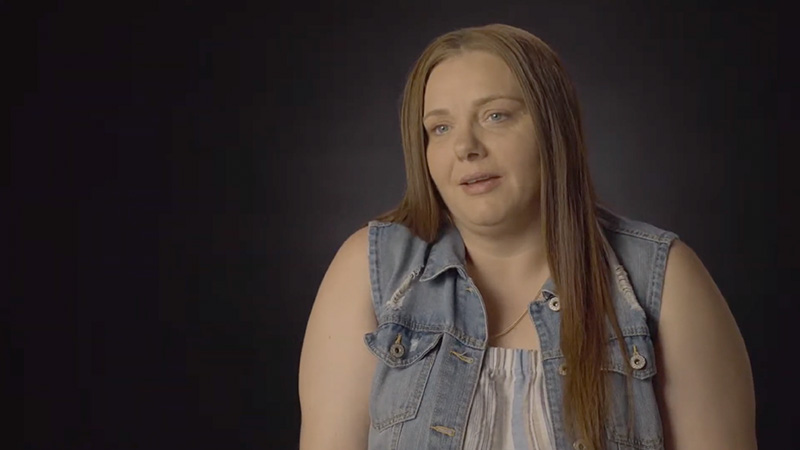Women with Older Children
Mothering is a process, so is recovery.
In Our Own Voices: Women with Older Children

Parenting: Finding a Balance
Remember that – no matter how busy you are with parenting – your recovery is the foundation of your life, and your parenthood.
Read along or listen to this section using the audio player.
Early recovery can feel like parenting. We have this new thing, our recovery, that we need to take care of in order to keep it healthy.
When you also have a child, or children, to take care of, it can feel like too much at times.
The most important thing to remember is that you cannot do it by yourself. Both parenting and recovery require support. Map out where you’ll get your support. You can have family, friends, and professionals as part of the team. Parenting and recovery groups are also helpful sources of comfort and support.
Make a list of things that are essential to your recovery. Those are the things that cannot be skipped, no matter what. Ask for help with parenting to make sure those things can fit into your schedule. Get creative – use your phone for support calls; ask for help with childcare; schedule appointments during daycare or school hours to make sure you stay engaged in your recovery.
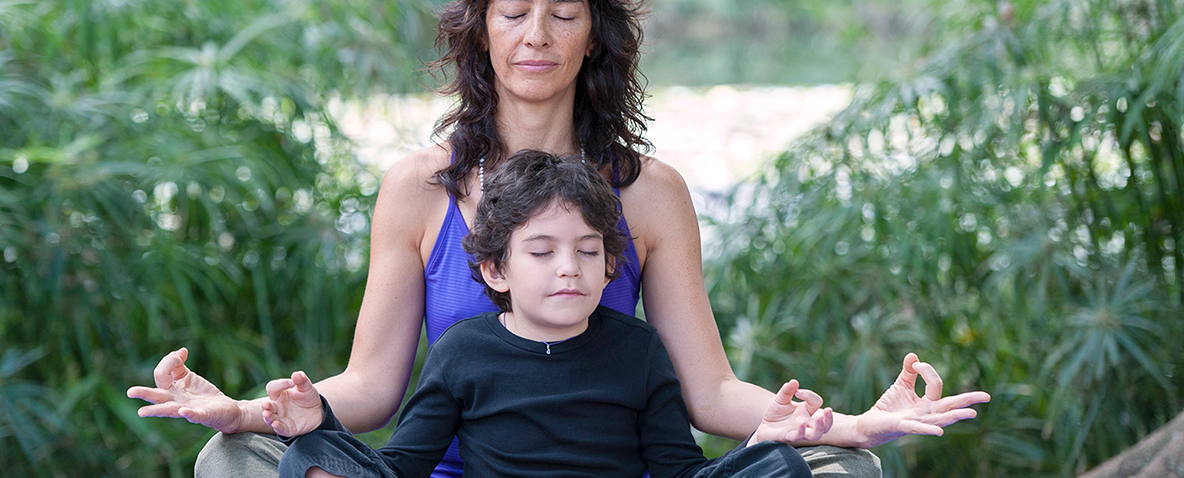
Parenting: First Things First
The beginning of being a good parent is getting better at understanding yourself.
Read along or listen to this section using the audio player.
It’s hard to make space in your head and heart for your child’s feelings unless you first make space for your own.
If you’re trying to react more calmly to your child’s feelings, the first step is to practice noticing what you’re feeling. Ask yourself questions, like: “Where is this feeling coming from?” “What do I need in order to deal with this feeling?” For instance, if you have a rush of fear, what do you need right now to feel more safe? “Is this feeling about what’s happening now, or is this an old feeling or a memory?” “How can I give myself comfort in this feeling?”
Asking these questions of yourself will help you learn to ask them when it is your child who is having the big feelings.
Ask your child to notice what they are feeling, how it shows up in their body, and what they think they might need. Your child might need help finding the right words for what they are feeling and needing. You can help by listening, reflecting before reacting, and thinking together.
One pitfall among mothers in recovery is a feeling of guilt or fear that you’re not good enough. It’s important to remember that you DO have what it takes to be a great mother. No one knows how to be a mother without a lot of learning. If you mess up, no problem! Start again. You and your child are learning and growing together.
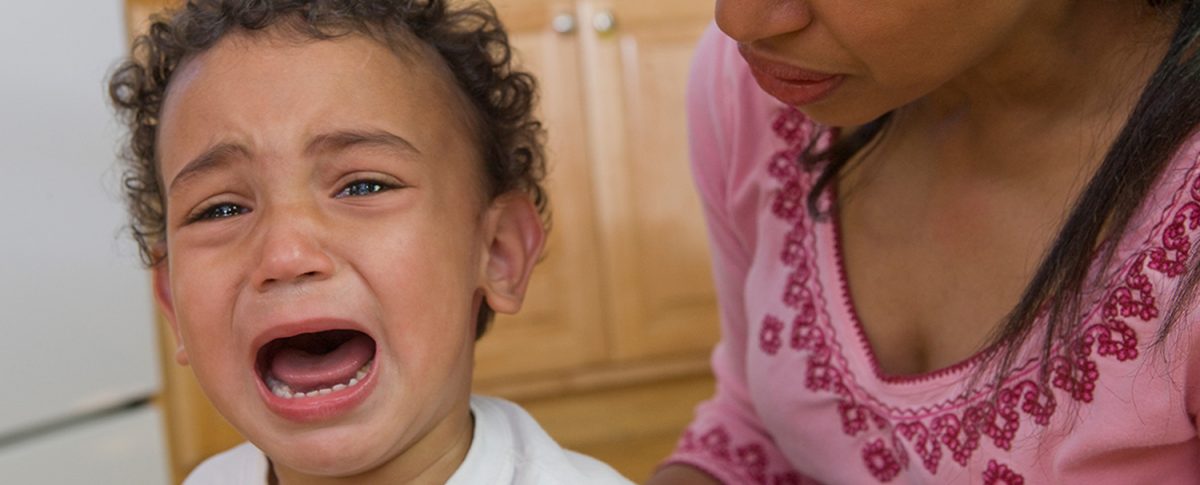
Understanding Behavior: Big Feelings
BIG feelings (fear, frustration, even happiness) need to be expressed, and your child might not know how to communicate their feelings yet – so they hit or act out.
Try to understand the feelings behind the behaviors, instead of shaming or punishing them.
In Recovery we learn how to feel uncomfortable without acting out. Your child is learning this too!
Read along or listen to this section using the audio player.
If your child is having tantrums, remember that Crying and Tantrums serve a purpose. They are healthy ways for a child to release uncomfortable feelings.
Try to sit with your child as they cry or throw a fit. Reassure them by saying “I understand”, “you are safe.” “I will stay here with you”. If you can, don’t rush them to get over their feelings.
You can do this while still letting them know that hitting or biting is not okay, and that you won’t let them hurt others.
This also works with teenagers. Often, shutting down or acting out are ways a teenager will express BIG feelings. Your child is never too old to learn a healthier way to express their feelings. Keep trying to connect. Tell them over and over that whatever they are feeling is okay. In many ways, this is similar to what you’re learning in recovery: remember when you’ve had a craving and haven’t acted on it? That same overwhelming feeling might be what your child is going through. Learning to tolerate your own discomfort helps you show your children how to tolerate theirs. Remind them that it will pass, and they are strong enough to handle it.
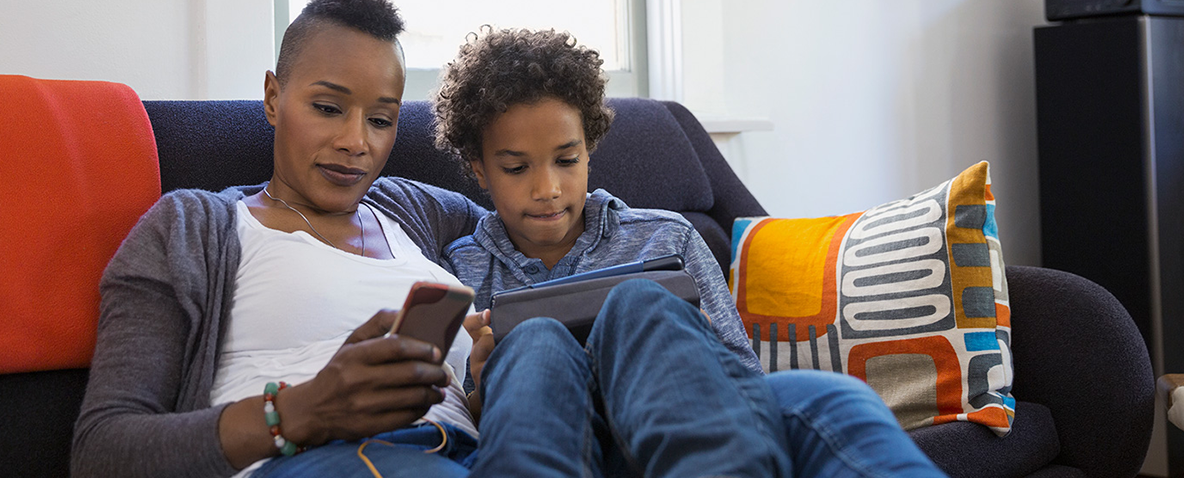
Parenting Styles
The only wrong way to parent is to give so much to your child that you stop taking care of yourself.
You cannot offer anything if you are empty. Staying connected with your recovery might feel selfish, but it is actually the most loving thing you can do for your child.

Siblings – how to parent children of different ages
Each child has different needs: what’s right for one child may not be right for another. You may not be able to give your children everything they want all of the time, but you can find a way to give them and yourself what you each need.
Read along or listen to this section using the audio player.
Parenting one child as well as taking care of yourself is a lot of work. Parenting more than one child, with different ages and personalities, is even more work! It is natural to feel overwhelmed.
If you are being pulled in more than one direction, for instance if two of your children are calling for you at the same time, here’s a tip: ask them if they really need your help right away, or if they are just feeling frustrated. This gives the child time to think about their own needs, and to practice asking for help.
Waiting and asking before you run to help them will also help them learn how to tolerate frustration and to problem solve on their own. Parenting more than one child also means you can expect arguments and disagreements. Your children might expect you to resolve them. Finding the right balance between being the referee and letting them resolve their own conflicts is tricky: you are in charge of their safety, but letting them practice working it out themselves is also important.
They will watch how you handle frustration and conflict. If you give them language to use to solve arguments and hard feelings, they will be better able to work out these situations on their own.
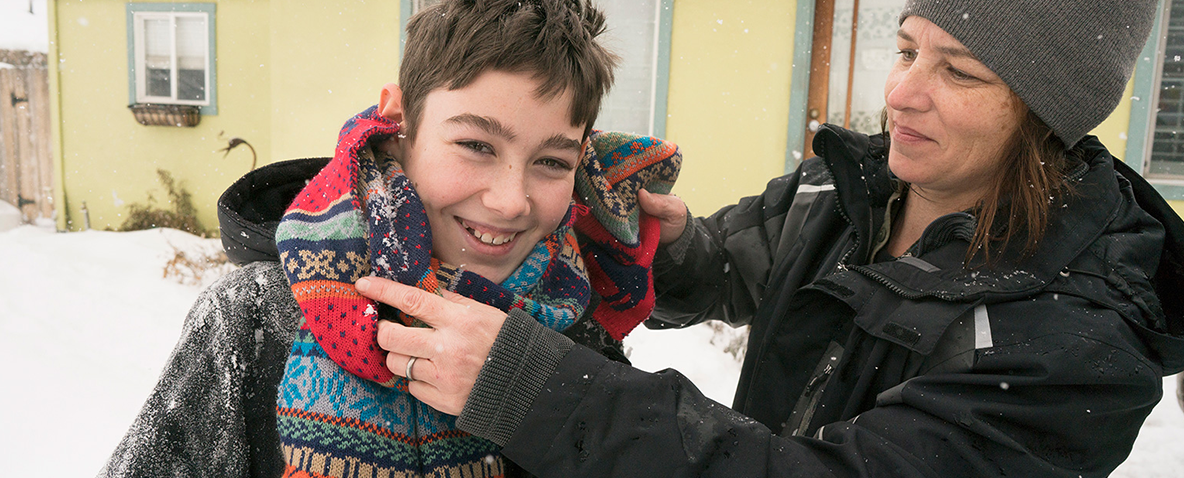
Parenting from a place of wellness
The most important parts of motherhood are Safety, Boundaries, Structure, and Love.
Read along or listen to this section using the audio player.
Women in recovery often feel like they have to make up for something, or prove that they are good enough mothers. You don’t. You are good enough. You don’t have to be different or have a different past in order to be a fantastic, normal mother.
Every woman acted differently in the past from how she wants to act now, as a mother. You can change. But be kind to yourself. And give yourself credit for every little change you make. Change is not easy. Also, your children will do better, and your relationship with them will be more secure, if you parent from a place of self-confidence– not from a place of guilt or shame. It is important for your children to see a self-loving example in their mother. When you feel the urge to give them extra treats or bend the rules because you feel bad about the past, try to remember: they need a mother right now who has consistent rules and firm boundaries. The best way to make up for lost time is to be a self-caring, solid mother today. And that is enough.
It is important to remind yourself that you are a mother, regardless of custody or history.
Read along or listen to this section using the audio player.
There are many ways to be a mother. Your identity as a mom may change as your children get older and become more independent. One way to help you to understand your identity as a mother, is to meet other mothers and parents, and learn what you share in common. By connecting with other parents, you will find both identity and community in the values you share.
It is important to remind yourself that you are a mother, regardless of custody arrangement or history. None of those things change the fact that you are a mother to a child, and therefore will always be important to them. If you stay open and involved, you will find that there are many ways to be a mother to children out of your custody. Finding ways that work for you, your children, and any other guardians will take time, strength, and patience. But you can do it.
Read along or listen to this section using the audio player.
People in recovery often say that they had to take care of themselves before they were able to care for anyone else. Sometimes, as mothers, we don’t have time to care only for ourselves before we have to start caring for children. Even so, it is important that, in everything we do for our children or our families, we have a moment in that action – no matter how small – to care lovingly for ourselves.
As mothers and as people with histories of substance use, we have to continuously put health and comfort into ourselves and our lives in order to stay full. Instead of a punishment, we have discovered this to be a beautiful way of living. We give to ourselves throughout each day, and in that, we learn to give of ourselves, to our children and to the world.

Custody and Reunification
Acknowledge the pain, fear, and frustration you may have felt about custody situations in the past. It is easy to expect the worst, but remember that you cannot predict what will happen. Name what you hope the outcome will be. Think of an image that represents that hope. When you are feeling overwhelmed, picture this image and remind yourself why you are working to regain custody. Keep your eye on the prize.
Read along or listen to this section using the audio player.
Try to find allies or supportive people to help you advocate, respond to and work through this process. This can be a case manager, a therapist, a friend, a relative or a peer support person who may have experience with the custody process. If you can, try to build a relationship with your caseworker. Try to show them the hard work you are doing and ask them to support your efforts. It is natural for your feelings of pain, frustration and fear to come up.
Try to communicate with your caseworker from a place of calm so that they can hear you. Use your team to express your feelings and to practice communicating clearly. Remember that every interaction is a chance to work on building trust with your caseworker. It may be unfair, but it is your job to do much of that trust building. This is still true if you don’t get what you want right away. You have time to continue working on regaining custody. Don’t give up, and don’t let this knock you off your recovery beam. Your child needs you to stay in the game now more than ever.
Rituals are one way to show a child you value them. Maybe every time you’re with your child, you read a certain book or go to a special place together. That routine will help your child feel comfortable. Maybe you want to come up with a secret handshake or code word to remind them that they are special to you and loved. As your child gets older, they can help decide what special ways you two show that you are connected.
Read along or listen to this section using the audio player.
It is incredibly hard to have any separation from your child. The fear and guilt and powerlessness can feel unbearable. You get so much credit for staying connected to your recovery, or reconnecting with recovery during this painful period. It is easy to think in black or white: either I have custody or I don’t; either I’m a mother or I’m not. It is important to remember that you are still a mother, even if you don’t have custody right now.
Your child, no matter what age they are, will do better if you stay connected. Even though it’s hard, how can you connect with them through visitation? How can you get your team to help you advocate for more visitation, and support you before and after you spend time with your child? How can you stay present with your child and also get your emotional needs met? How can you keep building a relationship with your caseworker so that they can see the work you are doing? Write out these questions and answer them with the help and support of your team.
Read along or listen to this section using the audio player.
Feelings will come up when you don’t get the custody arrangement that you want. You will have feelings about it, and so will your children. It is helpful to remember that children express feelings through behavior. Pay attention to any behavior changes and support their feelings to help them process the situation.
Practice holding your own feelings and also show up for your child’s feelings. If you’re angry or disappointed or afraid, try not to make your child feel those things too. And if they are upset, that doesn’t mean you have to get upset, or that you are to blame for their feelings. It’s important for your child to know that they can feel and act out without causing you to lose it.
They feel safe when you stay steady because it reassures them that they are the child and you are the adult. This means you will have to hold your feelings, but it doesn’t mean that you should ignore them or stuff them inside. Find people you trust who can help you express and hold your feelings. You might want to cry and yell and storm, and that is okay. Make sure you have good support and care from your recovery team.
Read along or listen to this section using the audio player.
If you have custody of one child and not another, think about how you can show both children that you love and care for them. When you are with the child you have custody of, continue to talk about the other child.
Make them a part of your everyday life, and the lives of all of your children.
The child out of your custody might feel jealous of the one you have custody of. This is a normal feeling and you should try to sit with your child and say you understand. Ask them how you can help them feel loved by you, and remind them often that you are still their mother and are working hard to stay connected. Help the siblings connect, by supporting them in writing to each other, or making each other small gifts. Don’t fall down into guilt. You are doing everything in your power to stay on your recovery journey and build this relationship with your children. You deserve so much credit for that hard work.
Patience is the key to getting to know your child after a period of separation. Patience with yourself, and with them.
Be curious about who they are, and look for ways to have fun together. Don’t expect to get it right all the time. You can develop a relationship with your child at any time. Stay open and honest, and be brave. They are probably also nervous. You can figure this out together, as a team.
Just because your kids don’t live with you, it doesn’t mean you’re not a mother.
Read along or listen to this section using the audio player.
Some parents live with their children, and others don’t. It can be painful to accept a custody outcome that you didn’t want, but it doesn’t have to be the end of your parenting journey. Your child may grow up and be curious about you. You might have another chance to build a relationship with your child in the future. You might have wisdom and experience that can help many other women who are going through the same thing you went through. Don’t give up on yourself or on your recovery. Recovery makes healing possible: both in yourself and in your relationship with your children.
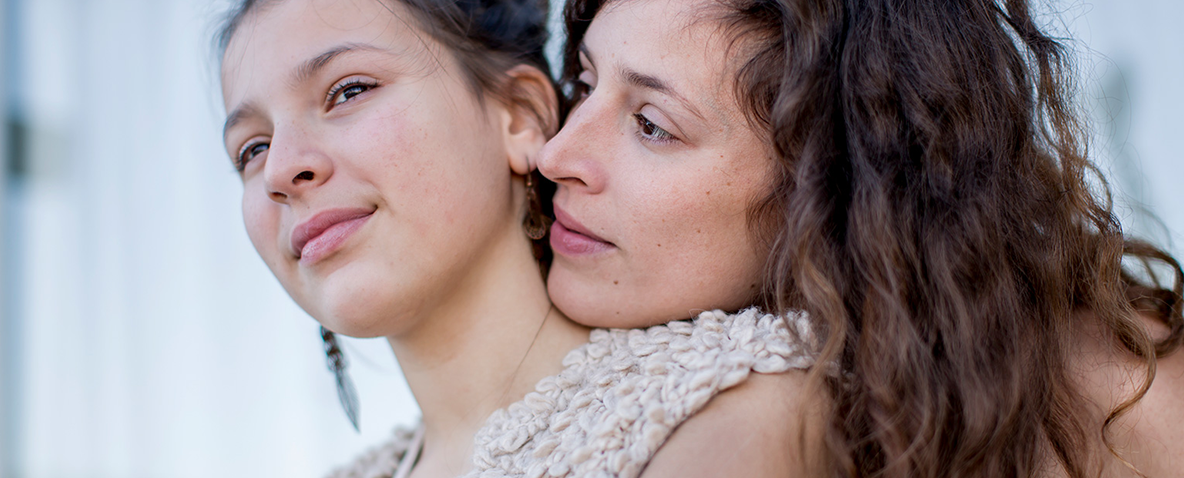
An Individual Journey
Read along or listen to this section using the audio player.
Sometimes how we choose to parent is different from how we were parented, how our family and friends parent, or how other people think we should parent.
It’s important for us to stay present with what is right for us, and for our children. As we get to know ourselves and our children, we will learn what works best for us. We might have to mess up in order to figure this out.
Other people might criticize our parenting or offer advice that we didn’t ask for. We can learn how to respond to other people’s opinions in a way that still honors our own choices. We can reach out to a parenting coach, therapist, or parenting group to get support and encouragement for our mothering journey.
Every parent and child pair is different. You might parent one of your children differently than another, because they have different needs or personalities. No one can tell us exactly how to parent. We have to stay open-minded, willing, and patient with ourselves, our children, and our process.
I am recovering
